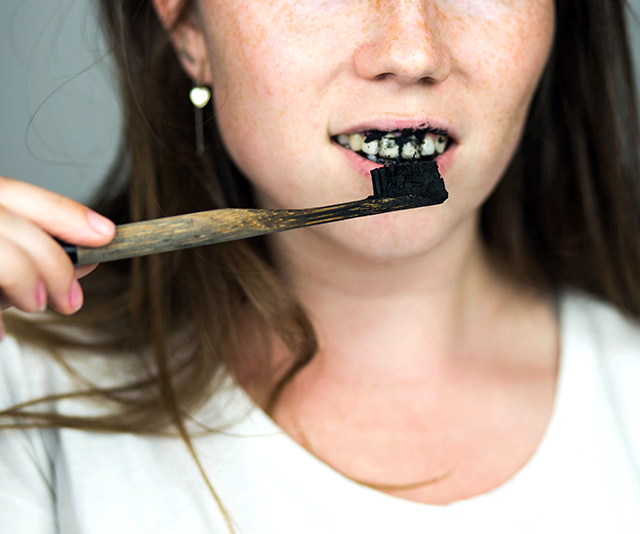We all know that foods like toffee and hard candies should be avoided for a sparkling smile, but what about drinks?
Turns out there are a fair few drinks that we should be sipping in moderation to protect our pearly whites, and some weren’t even on our radar.
EMS Dental Clinical Educator and Dental Hygienist Tabitha Acret popped the lid on some of the drinks that could be causing damage to our teeth. Brace yourselves!
1. Juice
Many parents would never think of giving their small children a can of cola, but give them multiple cups of juice throughout the day.
Juice may seem like a healthy alternative to soft drinks, but fruit juice often contains more sugar than a can of soft drink, and it doesn’t matter that they’re natural sugars.
Fruit is better served whole as the flesh provides more nutritious fibre, so sip on water instead.
2. Lemon water
Instagram and Facebook feeds are overload with posts promoting the use of lemon water daily for your inner health.
What you may not know is that lemons have a very low pH and drinking lemon water daily can cause irreversible damage to your teeth. In fact, lemon juice is comparable to the acidity of battery acid.
The acidity strips the enamel and in turn causes your teeth to be sensitive and more susceptible to decay. Once the enamel is eroded, it isn’t coming back!

Miranda Kerr swears by lemon water, but it may not be doing much good for her teeth.
(Image: Instagram @mirandakerr)3. Flavoured waters
Flavoured waters are being advertised everywhere, from the latest Insta celebrities or hip-hop artists. However, these drinks are just a cheeky way of giving you acid and sometimes sugar when you don’t even realise it.
Even the sugar-free flavoured waters that are supposedly ‘good for you’ have a pH of 3, which is as low as soft drinks and can cause acid erosion to the teeth. Always remember to read the labels!
4. Energy drinks
We’ve all heard the dangers that energy drinks can cause to our bodies.
Filled with caffeine, chemicals and a pH of 2.6-3, energy drinks when consumed regularly can cause major damage to vital tooth structures.
READ MORE: The terrifying effects of energy drinks mixed with alcohol.

Energy drinks aren’t good for your health, including your dental health.
(Image: Getty Images)5. Sport drinks
Promoted as the go-to drinks for after workouts, sport drinks are high in sugar and have a low pH of 2-7 – 3.1.
They are advertised to drink at a time when you are dehydrated or have dry mouth from exercising, but it’s the worst time to consume them.
After exercising, your mouth doesn’t have as much saliva present that is the natural buffer to sugar and acids so the sports drink you are consuming can cause major damage to your enamel through erosion, causing decay.
6. Wine
Bad news for those who like a tipple. Most wines have a pH of 2.9 – 3.5, meaning a swig of red or white wine can erode your enamel.
Red wine is slightly less acidic than white wine, but before reaching for that Pinot Noir, red wine is more likely to stain your teeth.
The best way to avoid a purpley/red smile is to ensure your teeth are plaque free so when you know you’ll be drinking red wine, try to brush no more than an hour before as brushing too close to picking up a glass can alter the taste.

At least white wine is less acidic than red wine!
(Image: Getty Images)So what should we be drinking?
When you’re feeling thirsty, tap water is the way to go.
In most places around Australia, it contains fluoride which is a mineral recommended by leading health organisations both here and around the world.
WATCH: Six tips for drinking more water. Post continues after video…
It’s also important to brush your teeth twice a day with a fluoride toothpaste and regularly visit the dentist for check ups.
If you’re someone who dreads lying back in the dentist’s chair, ask your dentist/hygienist about the AIRFLOW Dental Spa, a revolutionary spa-like dental experience – no sharp instruments, no messy pastes and no noise.

